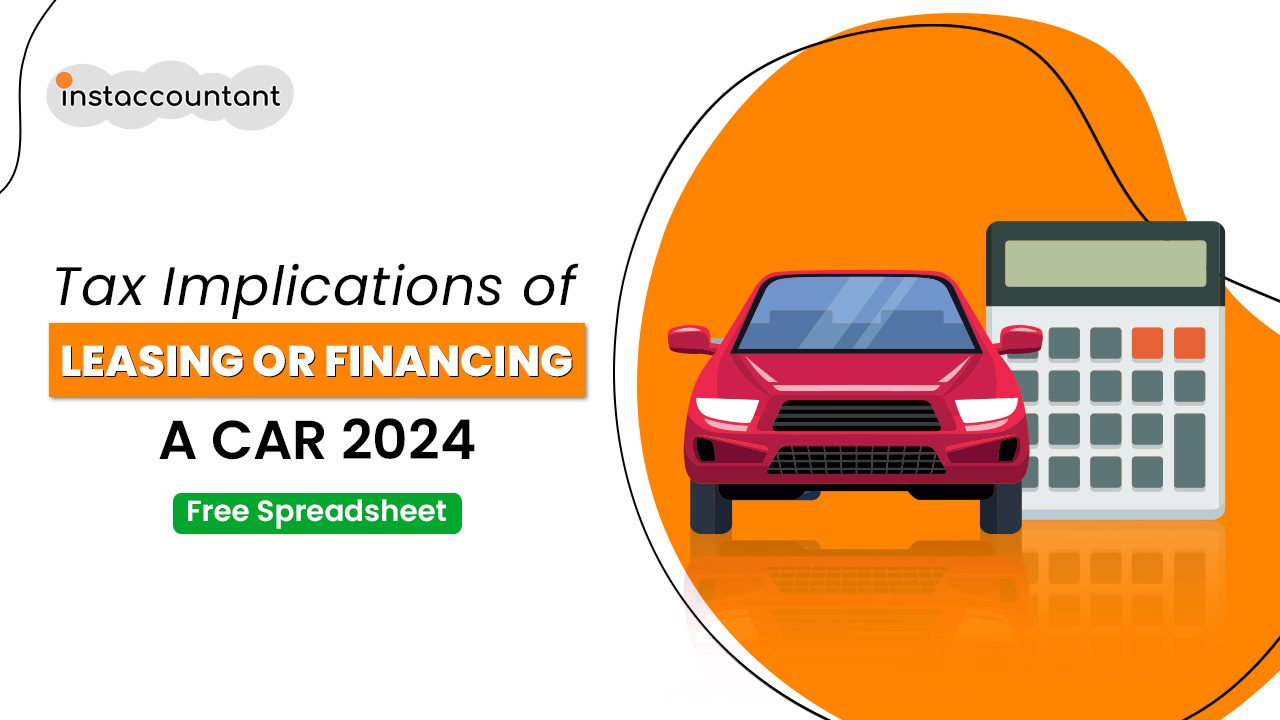When it comes to getting a car, the decision of whether to lease or finance can be a daunting one. As an accountant, I understand the importance of this decision and the long-term financial impact it can have. In this blog, I will discuss the tax implications of leasing or financing a car, specifically for self-employed individuals and small business owners. While there are many factors to consider, understanding the tax deductions and how they affect your overall financial picture is crucial. So, let’s dive into the numbers and explore the differences between leasing and financing a car.
Understanding Car Financing Numbers
Let’s start by looking at the numbers involved in financing a car. Imagine you go to a dealership and finance a car with a loan of $1,000. The bank charges you 10% interest on this loan, and the repayment period is set at five years. This means you will be making annual payments of $200 towards the principal amount. Additionally, the car is expected to depreciate by 20% each year.
In the first year, you would pay $300, which includes the $200 repayment of the principal amount and $100 in interest. As a self-employed individual or small business owner, you have the opportunity to deduct certain expenses on your tax return. In the case of financing a car, you can claim the interest paid and the depreciation as tax deductions. So, in this example, your tax deduction for the first year would be $300.
However, it’s important to note that these deductions decrease over time. In the second year, your tax deduction would be $240, and it would continue to decrease each subsequent year. By the end of the five-year term, your total tax deduction would be $972, which is approximately 75% of the total cash outflow of $1,300.
Tax Benefits of Leasing a Car
Now, let’s compare these numbers to the scenario of leasing a car. In this case, you would still get a car priced at $1,000, but with no interest charges. Instead, you would make monthly payments of $150 for a set period, let’s say five years. At the end of the term, you may have the option to buy back the car for 30% of its original price, which is $300 in this example.
Leasing a car offers some distinct advantages when it comes to tax deductions. Since you are essentially renting the car, your monthly lease payments can be fully claimed as a tax deduction. This means that your total tax deduction over the five-year period would be equal to the total amount paid for the lease, which in this case is $750. This is a significant advantage compared to financing, where the tax deduction is lower.
Should I Lease or Finance a Car? (Download Free Spreadsheet)
Considering Other Factors
While the tax implications are important, there are other factors to consider when deciding whether to finance or lease a car. Let’s take a look at some of the pros and cons of each option:
Financing a Car
- Pros:
- Ownership: You will own the car.
- No mileage restrictions: You can drive as many miles as you like.
- Ability to customize: You can customize the vehicle to your liking.
- Lower insurance cost: Insurance costs are generally lower for owned vehicles.
- Cons:
- Higher monthly payments: Financing a car often requires higher monthly payments compared to leasing.
- Higher maintenance cost: As the owner, you are responsible for maintenance and repairs.
- Depreciation risk: The value of the car may decrease over time, potentially impacting its resale value.
- Possible negative equity: If the value of the car drops significantly, you may owe more than it is worth.
Leasing a Car
- Pros:
- Lower monthly payments: Lease payments are generally lower than financing payments.
- Less maintenance cost: Leased cars are typically under warranty, reducing maintenance expenses.
- More flexibility: You can change cars more frequently, usually every few years.
- No hassle of selling: At the end of the lease, you simply return the car without worrying about selling or trading it in.
- Cons:
- No ownership: You do not own the car and must return it at the end of the lease term.
- Mileage restrictions: Most leases come with mileage limits, and exceeding them can result in additional fees.
- Fees for wear and tear: If the leased car shows excessive wear and tear, you may be responsible for additional charges.
- Higher insurance cost: Insurance premiums are often higher for leased vehicles.
Conclusion
Deciding whether to lease or finance a car is a personal choice that depends on various factors. While leasing offers the advantage of lower monthly payments and higher tax deductions, it comes with limitations, such as no ownership and mileage restrictions. On the other hand, financing provides ownership and the ability to customize the car but involves higher monthly payments and potential depreciation risks.
Ultimately, it’s essential to weigh the financial implications, including tax deductions, against your personal needs and preferences. Remember to consider factors beyond the numbers, such as your long-term plans, lifestyle, and the potential impact on your overall financial situation. By carefully considering all these factors, you can make an informed decision that aligns with your goals and ensures a satisfying car ownership experience.
If you have any questions or need further clarification on the topic, please feel free to leave a comment. I am here to help you navigate the complexities of leasing vs. financing a car.




